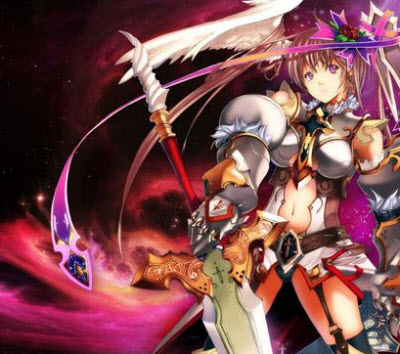 Outspark, a massively multiplayer online game publisher that brings Asian games to the U.S., confirmed it is in talks about being acquired. But the company had no comment that Shanda Games is about to purchase it.
Outspark, a massively multiplayer online game publisher that brings Asian games to the U.S., confirmed it is in talks about being acquired. But the company had no comment that Shanda Games is about to purchase it.
Susan Choe, chief executive of San Francisco-based Outspark, confirmed in a phone call that the company has been pursued by suitors in recent months. She said that “the talks are progressing.”
VentureBeat has separately heard that Shanda could be the buyer. But Choe declined to comment on Shanda. She said that possible buyers are from both Asian and Western markets. Choe noted that other emerging game companies have executed deals with strategic allies and that Outspark hopes to do so as well.
We don’t know when the deal will happen or what the purchase price will be. Outspark has quietly built itself a good business importing Asian online games into the U.S. and European markets. That’s how it built a relationship with Shanda. This summer, it brought Shanda’s Luvinia Online, a massively multiplayer online game, to western gamers. Choe said Outspark will publish four or five more games soon and that it is in talks with Shanda about bringing more of its games to Western markets.
The previous publishing deal with Shanda was important because Shanda is one of China’s biggest online game companies. Outspark has been on a quest to prove that free-to-play massively multiplayer online games will prove as popular in the European and U.S. markets as they are in Asia.
Outspark also wants to show that, even in the age of successful Facebook apps, it still makes sense for game companies to create their own online game platform that they can completely control.
It hasn’t been easy. Outspark hired chief executive Owen Mahoney, a former Electronic Arts executive, in September, 2009. Last year, he gave up the title and moved to South Korea’s Nexon. Choe, founder and chairman of Outspark, resumed the role of CEO.
In the past, she acknowledged that her company’s audience is much smaller than Zynga’s on Facebook. But she believes that her company’s gamers are more loyal and may turn out to be very lucrative in the long run.
Back in June, the company had around 3 million monthly active users and 6 million registered users. Choe said today that updated numbers aren’t available, in part because comScore has not kept up with the latest numbers.
While Outspark hasn’t opted to advertise heavily to gain tens of millions of users, it has built a strong business. Outspark’s games are free to play, which means users can play for free and pay real money for virtual goods such as better weapons or decorations.
About 9 to 10 percent of Outspark’s 3 million monthly unique users pay. Of those who pay money, the average revenue per paying user is $50. Those players pay for an average of eight months, which equals a lifetime value per customer of $400. Typically, the users start paying 14 days into the game play. About 80 percent of those are males ages 16 to 30. The average session is a half hour. Choe wasn’t disclosing actual revenues, but she said revenues in June were double what they were a year ago.
Shanda’s Luvinia Online has millions of monthly players. Outspark localized it for Western markets, changing the user interface and language as needed. It then applied its metrics to measure the results and modify the game as necessary. That’s part of the data-driven model that has helped Outspark get industry-leading results, Choe said in an interview back in June.
Choe said the company’s focus has been deliberate and she believes that people who are playing games on Facebook will eventually trade up to a more rewarding experience. So they may at some point migrate to games on Outspark.
Choe said that Outspark can control its destiny because it publishes games to its own web site. It isn’t beholden to platform holders such as Facebook, which has clashed with Zynga over platform tax issues. By contrast, no one stands between Outspark and its audience of gamers.
After 3.5 years of hard work, Choe said she felt that growth would come. The company has invested in engaging games. It can cross sell the different games to users on the site, so Outspark doesn’t have to advertise heavily. And it is making more casual online games that aren’t as complicated to play as World of Warcraft, the industry leader in online games.
Outspark last year published an online dancing and shopping game from J2M, a game studio in South Korea that Electronic Arts recently acquired. Beyond the traditional game companies, Outspark’s rivals include Asian companies such as Nexon, which has expanded into the U.S. market. Outspark raised $8.3 million in venture funding during the dry month of July, 2009, and has raised $22 million to date. Investors include DCM, Syncom Venture Partners, SBI Investment, Mille Plateau, Tencent and Altos Ventures.



